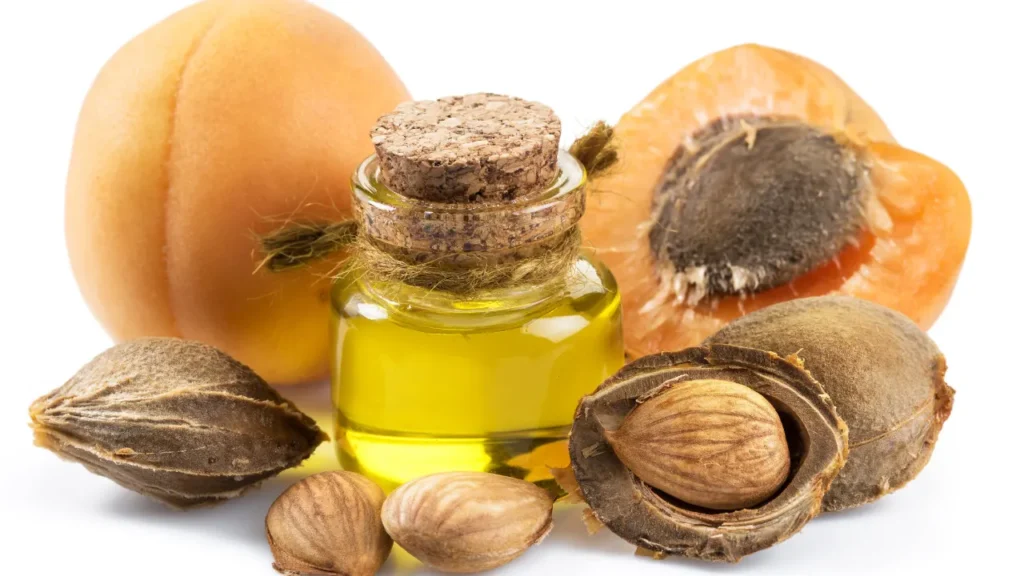A nutritional supplement called apricot is made from the fruit’s kernels. It includes a naturally occurring substance called amygdalin, often known as laetrile or vitamin B17. Despite its popularity as a natural health supplement, little scientific proof supports its alleged health advantages. This article seeks to give a thorough summary of apricot’s characteristics, health advantages, recommended dosage, adverse effects, potential drug interactions, and appropriate usage. The essay will also examine the chemistry of apricots and the physiological processes that affect the body and the brain.
You May Also Like:
Battle of the Brain Boosters: Brain MD Omega 3 Power vs. Kori Krill Oil Mind & Body
White Pepper: Benefits, Dosage, Side Effects, Drug Interactions, And Other Important Information
Apricot: Benefits, Dosage, Side Effects, Drug Interactions, And Other Important Information is an original (NootropicsPlanet) article.
Nature of Apricot
The kernels of apricot fruits are where apricots originate. The kernels are prepared for consumption as capsules, tablets, or liquid extracts after being dried, crushed, and formed. Amygdalin, a cyanogenic glycoside often referred to as laetrile or vitamin B17, is a substance found in apricots. Cyanogenic glycosides are organic compounds that, when consumed, emit hydrogen cyanide. The digestive enzyme beta-glucosidase hydrolyzes amygdalin in Apricot, generating hydrogen cyanide in the process.
Health Benefits of Apricot
Apricots have been promoted as a natural health food with several advantages. However, most of these assertions are not backed up by research. Apricot’s proponents assert that it can treat pain, lower inflammation, strengthen the immune system, and cure cancer, but there is no scientific evidence to support these claims.
Apricots’ ability to reduce oxidative stress is one potential health advantage. When the body’s capacity to neutralize free radicals and the generation of free radicals are out of balance, oxidative stress results. Free radicals are unsteady molecules that have the potential to harm cells, resulting in chronic illnesses, including cancer, heart disease, and Alzheimer’s. Antioxidants in apricots have the power to combat free radicals and lessen oxidative stress.

Chemistry of Apricot
Amygdalin, a cyanogenic glycoside in apricots, comprises two hydrocyanic acid (HCN) molecules, a sugar molecule, and a benzene ring. The fact that amygdalin is attached to a sugar molecule rather than existing in its free form in nature is thought to protect the organism against the toxicity of HCN. The digestive enzyme beta-glucosidase hydrolyzes amygdalin when it is consumed, releasing HCN.
When consumed in significant doses, the potent toxin hydrogen cyanide can be highly harmful. Cyanide functions by attaching to and blocking the cytochrome c oxidase enzyme, which is essential for cellular respiration. Cells that lack cytochrome c oxidase will eventually perish because they cannot generate energy through oxidative phosphorylation.
It is believed that HCN is gradually released from amygdalin in the intestines, reducing its toxicity. Nevertheless, excessive or uncontrolled consumption of amygdalin can result in cyanide poisoning, which can be fatal.
Physiological Mechanism of Action
The physiological mechanisms behind apricot’s impact on the body and brain are unknown. Apricot’s proponents assert that it can treat pain, lower inflammation, strengthen the immune system, and cure cancer. However, these statements are not backed by any scientific data.
The antioxidant activity of apricots is one possible mode of action. Free radicals are unstable chemicals that can harm cells and cause chronic diseases, including cancer, heart disease, and Alzheimer’s disease. Antioxidants are substances that can neutralize free radicals. Antioxidants in apricots, like polyphenols and carotenoids, help combat free radicals and lessen oxidative stress.
The ability of apricots to affect the immune system is another potential method of action. According to specific research, apricots may improve the immune response by promoting the synthesis of cytokines and other immune cells. However, additional study is required to validate these results.
The concept that apricots can treat cancer is unsupported by scientific research. Amygdalin, which is found in apricots, can cause cyanide poisoning if consumed in large quantities and can be lethal. Although some research has suggested that amygdalin may have anticancer qualities, these results have not been verified in trials involving humans, and it is not advised to consume apricots or other sources of amygdalin to treat cancer.

Optimal Dosage of Apricot
Apricot does not have a set dosage that is always advised. Apricot does, however, contain cyanogenic glycosides, which, when consumed, can emit hydrogen cyanide. When consumed in significant doses, the potent toxin hydrogen cyanide can be highly harmful. Because of this, consuming apricot in moderation and following the manufacturer’s dose recommendations is crucial.
Side Effects of Apricot
Amygdalin, a cyanogenic glycoside found in apricots, can cause hydrogen cyanide emission when consumed. When taken in large amounts, the powerful toxin hydrogen cyanide can cause significant harm. Too much apricot can result in symptoms like nausea, vomiting, lightheadedness, headaches, and, in severe circumstances, coma or even death. In addition, some individuals may be allergic to apricot and display allergic responses such as hives, itching, and breathing difficulties.

Potential Substance Interactions with Apricot
Apricots with specific drugs, herbs, and dietary supplements may interact. For instance, apricots may interfere with chemotherapy medications and lessen their efficacy. Apricots may also interact with other organic supplements that contain cyanogenic glycosides, like peach pits and bitter almonds.
Best Responsible Uses of Apricot
It’s crucial to utilize apricot sensibly, given the potential risks involved. Only buy apricot from reliable vendors and take them exactly as the manufacturer directs. Before ingesting apricots, customers should be aware of any hazards and see a doctor, especially if they are on any drugs or have any underlying medical conditions.
It is important to note that apricots contain cyanogenic glycosides, which can release hydrogen cyanide upon consumption. Large doses of this potent toxin can be highly harmful. It is crucial to consume apricots in moderation and to refrain from taking them in uncontrolled or excessive amounts.
It is significant to highlight that the ability of apricots to treat cancer or other severe ailments has not been established. As a result, consumers shouldn’t depend on apricots or other amygdalin-containing products to treat cancer or any other serious condition.
Apricot:
Conclusion
Despite anecdotal reports and alternative medicine proponents advocating for apricots as a cancer treatment, clinical studies have failed to demonstrate their efficacy in human subjects. Some studies have shown that amygdalin treatments may be associated with adverse effects and even worsen cancer outcomes. Due to safety concerns and a lack of evidence supporting its efficacy, regulatory agencies have restricted the sale and distribution of amygdalin-containing products in many countries.
Consumers should be cautious of unregulated supplements and alternative treatments claiming health benefits without scientific validation. It’s essential for individuals facing cancer or other serious illnesses to consult with qualified healthcare professionals and rely on scientifically validated treatments.

References:
- Cyanide Poisoning. Retrieved From: https://www.healthline.com/health/cyanide-poisoning
- Apricot Kernel – Uses, Side Effects, and More Retrieved From: https://www.webmd.com/vitamins/ai/ingredientmono-1190/apricot-kernel
- Cyanogenic glycosides in plants. Retrieved From: https://www.ncbi.nlm.nih.gov/pmc/articles/PMC4325046/
- Antioxidant activity of carotenoids. Retrieved From: https://www.ncbi.nlm.nih.gov/pmc/articles/PMC4747020/
Important Note: The information contained in this article is for general informational purposes only, and should not be construed as health or medical advice, nor is it intended to diagnose, prevent, treat, or cure any disease or health condition. Before embarking on any diet, fitness regimen, or program of nutritional supplementation, it is advisable to consult your healthcare professional in order to determine its safety and probable efficacy in terms of your individual state of health.
Regarding Nutritional Supplements Or Other Non-Prescription Health Products: If any nutritional supplements or other non-prescription health products are mentioned in the foregoing article, any claims or statements made about them have not been evaluated by the U.S. Food and Drug Administration, and such nutritional supplements or other health products are not intended to diagnose, treat, cure, or prevent any disease.


